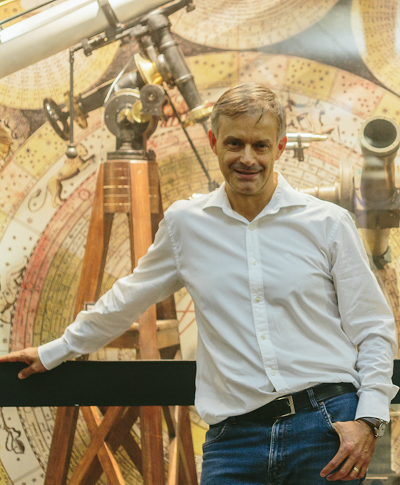From the Galaxies to Big Bang
Galaxies are the bricks of the universe. More than a century ago, it was thought that all the content of the celestial sphere was part of a single and vast aggregation: the Milky Way, our galaxy. Today, we know that it is one more among hundreds of thousands of million galaxies in a universe that is in accelerated expansion, consequence of a great explosion (Big Bang) that took place 13,800 million years ago. However, the evolution of the universe depends on matter and dark energy, mysterious but major elements in the cosmic inventory.
Request lecture
What ended the dinosaurs? A meteorite or volcanoes?
Ask anyone what killed the dinosaurs and the automatic answer will be: a meteorite! This is one of those scientific facts that everyone knows, including Hollywood filmmakers and kids. Except that might not be true. Perhaps it wasn't a meteorite, but volcanoes.
Let's find out.
Request lecture
Brief CV
Professor of Astronomy and Astrophysics at the Universitat de València and member of the Astronomical Observatory of the same institution. He has been a pioneer in the introduction of new disciplines such as fractals. He is a founding member of the Spanish Society of Astronomy. His main field of research is the study of the structure of the universe on a large scale. He has written numerous research articles published in prestigious international magazines and he is the author of books such as Astronomia Fonamental and Statistics of the Galaxy Distribution. In 2005, he won the «Estudi General» European Award for the Dissemination of Science with the work Mariners que solquen el cel. In 2011, he received the award granted by the Royal Spanish Society of Physics (RSEF) for Teaching and Dissemination of Physics (University Teaching).
More information
- Les escales còsmiques
- Las escalas cósmicas
- Fantasías oscuras de ayer y hoy
- https://www.youtube.com/watch?v=8m5iR3DjGwU
- https://www.youtube.com/watch?v=1CHzu-YJuUM
Social networks
- @VicentJM
- @ObservatoriUV
- @FacFisicaUV
- @CdCienciaUV
- @MednightGTS
![]()
Stimulating scientific vocations is a project of the Scientific Culture and Innovation Unit of the University of Valencia, which has co-funding from the Spanish Foundation for Science and Technology and the Ministry of Science and Innovation.











